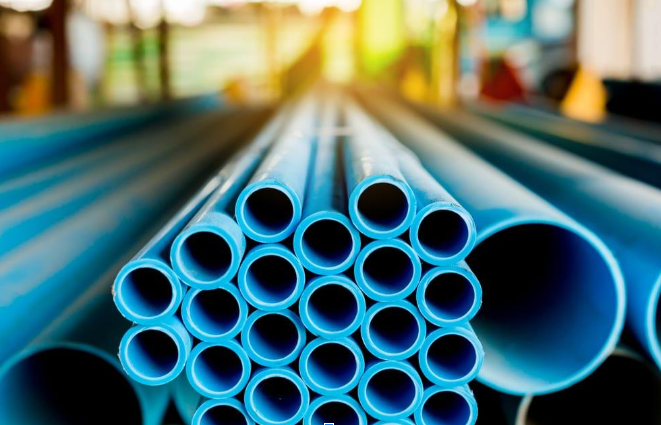The mining industry is one of the largest and essential industries in the world. The extraction of minerals, metals, and other valuable resources from the earth is a vital process that requires reliable and durable equipment. The key components in the mining industry are the use of pipes and pipelining for various applications, such as conveying water, slurry, chemicals, and other fluids. Plastic pipes have become increasingly popular in the mining industry, and their role is becoming more critical as the industry progresses. All these things combinedly create an enormous scope for mechanical engineers in Australia.
Plastic pipes are made of various materials such as PVC, HDPE, and PEX and have proven to be highly effective and efficient for a wide range of mining applications. They offer numerous benefits compared to traditional materials like steel and concrete, such as lower installation costs, increased durability, longer lifespan, and easier maintenance. Mechanical engineers should learn the installation and operation of plastic pipes used in the mining industry.
Here are some of the applications where plastic pipes have proven highly effective in the mining industry.
- Water and wastewater management
Mining operations require large volumes of water for various processes such as ore processing, dust suppression, and equipment cooling. Water management is a crucial aspect of mining operations, and it requires reliable and efficient pipes to transport water to and from various locations.
Pipe lining is a process in which an existing pipe is reinforced or repaired by adding a layer of material to its interior. This technique is commonly used in the mining industry to protect metal pipes from corrosion and erosion, which can occur due to exposure to chemicals, abrasive materials, and high-pressure fluids.
Plastic pipe lining materials such as polyethylene and polyurethane are highly resistant to chemical attack and have excellent abrasion resistance. Plastic pipes are an ideal solution for water management in the mining industry. They are lightweight, flexible, and easy to install, making them ideal for use in remote locations.
- Chemical transportation
Chemicals are an essential part of the mining process and must be transported safely and efficiently. Plastic pipes are perfect for chemical transportation in the mining industry because they are highly resistant to chemical corrosion. The pipes can withstand various chemicals, including acids, alkalis, and other corrosive substances. This makes them ideal for transporting chemicals used in mineral processing and other mining operations.
In the mining industry, high-pressure pipes are used to transport water, chemicals, and other fluids at high pressures and temperatures. Plastic high-pressure pipe clamps are ideal for these applications because they offer high strength, durability, and resistance to chemical attacks. Additionally, plastic clamps are lightweight and easy to install, reducing the need for specialised equipment and personnel.
- Slurry transportation
Mining operations generate large volumes of slurry, a mixture of water and minerals. Slurry transportation is a crucial part of the mining process, and it requires reliable and efficient pipes to transport slurry from one location to another. Because of their highly resistant properties, plastic pipes are ideal for slurry transportation in the mining industry. The pipes can withstand harsh conditions of slurry transport, including high pressure and flow rates. Additionally, plastic pipes offer a longer lifespan than traditional materials like steel, reducing maintenance costs and downtime.
Pipe grip clamps are a type of clamp used to secure pipes and other cylindrical objects in place. In the mining industry, pipe grip clamps are commonly used to hold pipes in position during drilling, blasting, and other operations. Plastic pipe grip clamps offer several advantages over traditional metal clamps, including their lighter weight, corrosion resistance, and ease of installation. Plastic clamps are also less likely to damage pipes than metal clamps, reducing the risk of leaks and other problems.
- Air distribution
Air distribution is an important aspect of mining operations, and it requires reliable and efficient pipes to transport air to and from various locations. Plastic pipes are ideal for air distribution in the mining industry because they are lightweight and easy to install. The pipes are also highly corrosion resistant, reducing the risk of air leaks and contamination. Also, plastic pipes are highly durable, making them ideal for harsh mining environments.
Pipe couplings are fittings used to connect two pipes together. In mining applications, pipe couplings are used to join piping sections or repair damaged pipes. Plastic pipe couplings offer several benefits over metal couplings, including their corrosion resistance, flexibility, and ease of installation. Unlike metal couplings, plastic couplings do not require welding or other specialised equipment to install, which can save time and reduce costs. Plastic couplings are less likely to damage pipes than metal couplings, reducing the risk of air leaks and other problems.
Conclusion
Plastic pipes are considered as a standard material for mining industry, processes and applications. It helped to improve the operational efficiency of the mining industry to a greater extent. Polyethylene pipes are used for solution mining, heap leaching, dust suppression, pit dewatering, mine dewatering and depressurisation. The increased use of plastic pipes increases the career scope for mechanical engineers in Australia.

